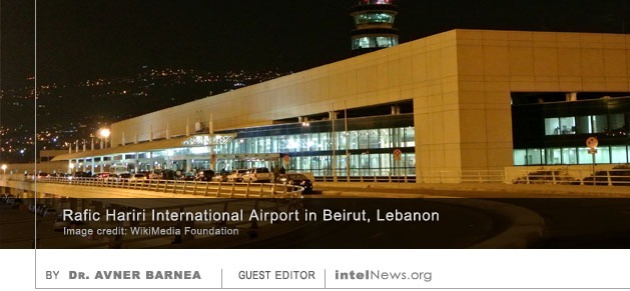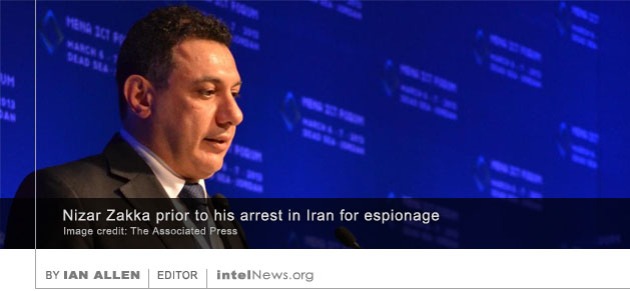Analysis: Killing of Hamas leader in Lebanon marks a new phase in Israel’s war
January 3, 2024 2 Comments
 MIDDLE EAST OBSERVERS WERE hardly surprised by yesterday’s news of the apparent assassination of Hamas leader Saleh al-Arouri in Lebanon. Not only was al-Arouri a senior Hamas official, but he also headed the militant group’s contact team with Lebanese Hezbollah and its Iranian patrons. He was likely at the top of Israel’s permanent assassination list even prior to Hamas’ bloody assault on Israel last October 7. Yet, within the explosive content of the ongoing Israel-Hamas war, Tuesday’s assassination signals the opening of a new and highly unpredictable phase in an already uncertain conflict.
MIDDLE EAST OBSERVERS WERE hardly surprised by yesterday’s news of the apparent assassination of Hamas leader Saleh al-Arouri in Lebanon. Not only was al-Arouri a senior Hamas official, but he also headed the militant group’s contact team with Lebanese Hezbollah and its Iranian patrons. He was likely at the top of Israel’s permanent assassination list even prior to Hamas’ bloody assault on Israel last October 7. Yet, within the explosive content of the ongoing Israel-Hamas war, Tuesday’s assassination signals the opening of a new and highly unpredictable phase in an already uncertain conflict.
The vague statements issued by Israeli officials in response to the news of al-Arouri’s assassination did little to dispel the broadly accepted view that Israel’s intelligence services were behind the killing. Headed by its external intelligence agency, the Mossad, Israel’s intelligence services have a long history of extrajudicial assassinations. In his seminal book Rise and Kill First, the Israeli investigative journalist Ronen Bergman discusses in detail the history of these assassinations, which predate the postwar establishment of the state of Israel. Bergman’s data-rich research reveals that the Israeli intelligence services have performed approximately 2,700 extrajudicial assassinations in their history —more than any Western state.
Given such a prolific history of targeted killings, al-Arouri’s assassination in Beirut can be described as both expected and unremarkable. Indeed, Israeli officials have stated repeatedly since October 7 that Hamas’ senior leadership will be targeted worldwide. In a leaked recording that emerged last month, Ronen Bar, director of the Israeli Security Agency, was heard announcing to members of Israel’s Knesset that Hamas’ senior leadership would be targeted “in Gaza, in the West Bank, in Lebanon, in Turkey, in Qatar, everywhere”.
At the time the recorded conversation leaked, nobody thought that Bar, a seasoned intelligence officer, was bluffing. Indeed, the operational capabilities and reach of the Mossad are well understood by everyone in the Middle East. That al-Arouri was assassinated in southern Beirut’s Dahiyeh suburb is significant. An undisputed Hezbollah stronghold, Dahiyeh is tightly controlled by the Shiite militant group, which prides itself on ensuring the safety of its residents.  Yesterday’s assassination at the very heart of Hezbollah’s lair was nothing short of a demonstration of the Mossad’s competency in special operations.
Yesterday’s assassination at the very heart of Hezbollah’s lair was nothing short of a demonstration of the Mossad’s competency in special operations.
If Israel is truly intent on neutralizing the leadership of Hamas, Mossad’s competency will be increasingly tested in the coming months, as the Jewish state will have to strike repeatedly beyond its borders. This is because, unlike the beleaguered Gazans, who are currently experiencing the most destructive bombing campaign of the 21st century, most leaders of Hamas live in relative luxury in Doha, Ankara, Beirut, Damascus, and other Middle Eastern metropolitan centers. It is there, and not in the razed neighborhoods of Khan Yunis and Jabalia, that Israeli assassination teams will need to operate with increasing dexterity. Read more of this post
 LAST WEEK, LEBANON’S GENERAL Security Directorate
LAST WEEK, LEBANON’S GENERAL Security Directorate  • State-level espionage on EU a ‘very high threat’ says report. The most successful attempts of espionage at a top EU institution are state sponsored, according to an
• State-level espionage on EU a ‘very high threat’ says report. The most successful attempts of espionage at a top EU institution are state sponsored, according to an  Iran has announced that it will release a Lebanese national and United States permanent resident, who has served nearly half of his 10-year prison sentence for allegedly spying for Washington. Nizar Zakka, 52, was born in Lebanon but was schooled in the US, where he lived permanently until 2015. In September of that year, Zakka traveled to the Iranian capital Tehran at the invitation of the government of Iran, where he spoke at a conference on Internet-based entrepreneurship. He attended the event as an information technology expert who worked for companies like Cisco and Microsoft before setting up his own company called IJMA3. Based in Washington, DC, IJMA3 lobbies investors to help build online networks in the Middle East in order to develop the region economically, socially and politically.
Iran has announced that it will release a Lebanese national and United States permanent resident, who has served nearly half of his 10-year prison sentence for allegedly spying for Washington. Nizar Zakka, 52, was born in Lebanon but was schooled in the US, where he lived permanently until 2015. In September of that year, Zakka traveled to the Iranian capital Tehran at the invitation of the government of Iran, where he spoke at a conference on Internet-based entrepreneurship. He attended the event as an information technology expert who worked for companies like Cisco and Microsoft before setting up his own company called IJMA3. Based in Washington, DC, IJMA3 lobbies investors to help build online networks in the Middle East in order to develop the region economically, socially and politically. Brazilian police have announced the arrest of Assad Ahmad Barakat, a Lebanese national who is believed to be one of the most prolific international financiers for the Shiite group Hezbollah. Barakat was born in Lebanon but fled to Paraguay in the mid-1980s in the midst of Lebanon’s brutal civil war. He began an import-export business and eventually acquired Paraguayan citizenship. He gradually built a small business empire in Paraguay, which included engineering and construction, as well as transportation firms. Throughout that time, however, Barakat maintained strong connections with Hezbollah, the paramilitary group that has a strong following among Lebanon’s large Shiite Muslim community.
Brazilian police have announced the arrest of Assad Ahmad Barakat, a Lebanese national who is believed to be one of the most prolific international financiers for the Shiite group Hezbollah. Barakat was born in Lebanon but fled to Paraguay in the mid-1980s in the midst of Lebanon’s brutal civil war. He began an import-export business and eventually acquired Paraguayan citizenship. He gradually built a small business empire in Paraguay, which included engineering and construction, as well as transportation firms. Throughout that time, however, Barakat maintained strong connections with Hezbollah, the paramilitary group that has a strong following among Lebanon’s large Shiite Muslim community. Media reports from Lebanon claim that Israel was behind a
Media reports from Lebanon claim that Israel was behind a  The spy agency of Lebanon used a virus designed for the Android mobile operating system to compromise the cell phones of thousands of people in at least 20 countries, according to a new mobile security report. The 50-page
The spy agency of Lebanon used a virus designed for the Android mobile operating system to compromise the cell phones of thousands of people in at least 20 countries, according to a new mobile security report. The 50-page  Western intelligence services warned Lebanon’s former Prime Minister Saad al-Hariri of an assassination plot against him, thus prompting him to resign on Sunday, according to Saudi news media. Hariri is a Saudi-born Lebanese politician, reputed to be one of the world’s wealthiest people. He is the second son of the late Rafiq Hariri, who ruled Lebanon for much of the 1990s but was assassinated in 2005. Saad al-Hariri spent most of his life in Saudi Arabia, the United States and France, but returned to Lebanon in 2014 to lead the Future Movement, a center-right political party supported by Sunni Muslims and some Christians. He became prime minister in 2016.
Western intelligence services warned Lebanon’s former Prime Minister Saad al-Hariri of an assassination plot against him, thus prompting him to resign on Sunday, according to Saudi news media. Hariri is a Saudi-born Lebanese politician, reputed to be one of the world’s wealthiest people. He is the second son of the late Rafiq Hariri, who ruled Lebanon for much of the 1990s but was assassinated in 2005. Saad al-Hariri spent most of his life in Saudi Arabia, the United States and France, but returned to Lebanon in 2014 to lead the Future Movement, a center-right political party supported by Sunni Muslims and some Christians. He became prime minister in 2016. A sophisticated spying device disguised as a rock, which was allegedly planted by Israeli intelligence, was found by Lebanese Army troops on a hill located a few miles from the Lebanese-Israeli border. The discovery was reported early on Saturday by several Lebanese news websites, including Al-Mayadeen and Al-Manar, which are closely affiliated with Hezbollah. Al-Manar
A sophisticated spying device disguised as a rock, which was allegedly planted by Israeli intelligence, was found by Lebanese Army troops on a hill located a few miles from the Lebanese-Israeli border. The discovery was reported early on Saturday by several Lebanese news websites, including Al-Mayadeen and Al-Manar, which are closely affiliated with Hezbollah. Al-Manar  An Israeli military official has repeated claims in the Arab media that the Lebanese Shiite group Hezbollah killed its own military commander in Syria, following a dispute with Iran. Mustafa Amine Badreddine, 55, an expert in explosives and former bomb-maker, was a senior military commander in the military wing of Hezbollah. He rose through the ranks of the organization to become a trusted adviser to Hezbollah’s Secretary General, Hassan Nasrallah. In 2011, the Special Tribunal for Lebanon, set up by the United Nations, charged Badreddine with organizing the assassination of Lebanese Prime Minister Rafik Hariri. Hariri was killed with over 20 other people in a massive bomb blast in Beirut, in February of 2005.
An Israeli military official has repeated claims in the Arab media that the Lebanese Shiite group Hezbollah killed its own military commander in Syria, following a dispute with Iran. Mustafa Amine Badreddine, 55, an expert in explosives and former bomb-maker, was a senior military commander in the military wing of Hezbollah. He rose through the ranks of the organization to become a trusted adviser to Hezbollah’s Secretary General, Hassan Nasrallah. In 2011, the Special Tribunal for Lebanon, set up by the United Nations, charged Badreddine with organizing the assassination of Lebanese Prime Minister Rafik Hariri. Hariri was killed with over 20 other people in a massive bomb blast in Beirut, in February of 2005. The security services of Lebanon announced on Wednesday that they had arrested five foreign nationals who were allegedly spying of Israel. A brief statement issued by Lebanon’s General Directorate of General Security (GDGS, also known as the General Security Directorate) said the five individuals were members of a “spy ring” set up by the Mossad, Israel’s external intelligence agency. The five —three men and two women— are accused of contacting Israeli embassies in countries in the Middle East, Europe and Asia, with the aim of passing information about domestic Lebanese affairs.
The security services of Lebanon announced on Wednesday that they had arrested five foreign nationals who were allegedly spying of Israel. A brief statement issued by Lebanon’s General Directorate of General Security (GDGS, also known as the General Security Directorate) said the five individuals were members of a “spy ring” set up by the Mossad, Israel’s external intelligence agency. The five —three men and two women— are accused of contacting Israeli embassies in countries in the Middle East, Europe and Asia, with the aim of passing information about domestic Lebanese affairs. The president of Lebanon said on Wednesday that Israeli intelligence was behind the killing of a Lebanese businessman who was shot dead by a team of assailants last weekend in southwestern Africa. Amine Bakri, 54, who was from southern Lebanon, had lived and worked in Angola since his mid-20s. He was a well-known businessman in the Angola capital Luanda, where he owned a number of factories that make furniture and various medical equipment. On Sunday, Bakri was driving on an unpaved road in the Angolan capital, when his vehicle was ambushed by a group of three armed assailants. According to media reports, one of the men shot the windshield of Bakri’s car and then proceeded to shoot him in the head at close range. The men fled the scene and Bakri was transported to a local hospital, where he soon died from his wounds.
The president of Lebanon said on Wednesday that Israeli intelligence was behind the killing of a Lebanese businessman who was shot dead by a team of assailants last weekend in southwestern Africa. Amine Bakri, 54, who was from southern Lebanon, had lived and worked in Angola since his mid-20s. He was a well-known businessman in the Angola capital Luanda, where he owned a number of factories that make furniture and various medical equipment. On Sunday, Bakri was driving on an unpaved road in the Angolan capital, when his vehicle was ambushed by a group of three armed assailants. According to media reports, one of the men shot the windshield of Bakri’s car and then proceeded to shoot him in the head at close range. The men fled the scene and Bakri was transported to a local hospital, where he soon died from his wounds. Israel has refused comment following the death of a senior official of Lebanese militant group Hezbollah, who was killed on Saturday in a missile strike in Syria. Samir Kuntar (also spelled Qantar) was a Druze who joined the Syrian-backed, Lebanese-based, Palestine Liberation Front (later Popular Front for the Liberation of Palestine – General Command) at a young age. In 1979, Kuntar was jailed for an attack on an apartment block in Israel’s northern coastal town of Nahariya, which resulted in the death of four Israeli civilians and two of the attackers. However, he was freed after nearly three decades in prison in exchange for the bodies of two Israel Defense Force soldiers, who had been captured and executed by Hezbollah in 2006.
Israel has refused comment following the death of a senior official of Lebanese militant group Hezbollah, who was killed on Saturday in a missile strike in Syria. Samir Kuntar (also spelled Qantar) was a Druze who joined the Syrian-backed, Lebanese-based, Palestine Liberation Front (later Popular Front for the Liberation of Palestine – General Command) at a young age. In 1979, Kuntar was jailed for an attack on an apartment block in Israel’s northern coastal town of Nahariya, which resulted in the death of four Israeli civilians and two of the attackers. However, he was freed after nearly three decades in prison in exchange for the bodies of two Israel Defense Force soldiers, who had been captured and executed by Hezbollah in 2006. Israeli authorities have charged a Swedish citizen with working as an intelligence officer for the Lebanese militant group Hezbollah. It is believed that Hassan Khalil Hizran, 55, was born to Palestinian refugees in Lebanon, from where he emigrated to Sweden many years ago. But he was
Israeli authorities have charged a Swedish citizen with working as an intelligence officer for the Lebanese militant group Hezbollah. It is believed that Hassan Khalil Hizran, 55, was born to Palestinian refugees in Lebanon, from where he emigrated to Sweden many years ago. But he was 






